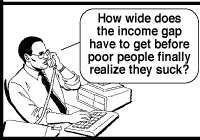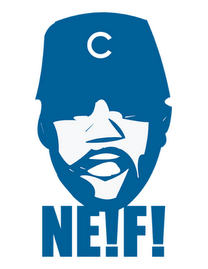
Brits trade privacy for security with surveillance
By Paisley Dodds
Associated Press writer
LONDON — In a bunker beneath London's bustling Piccadilly Circus, guards monitoring a grid of closed-circuit televisions spot something unusual. A suspicious package has been left behind amid the crush of tourists.
Moments later, a Hare Krishna picks up the abandoned cooler, which is filled with religious documents — not a bomb.
Civil libertarians warn of the damage to personal privacy. But polls show broad public acceptance, even if the cameras more often capture a couple in loving embrace than a terrorist about to wreak havoc.
Britain has more than 4 million closed-circuit security cameras, more than any other Western democracy. Police say the average Briton is on as many as 300 cameras every day, usually unaware. The density of surveillance is significantly higher than in any other Western democracy, says Jen Corlew, spokeswoman for Liberty, a London-based human rights group.
But nearly two years since the July 7, 2005, London transit bombings — a case where video surveillance tapes were key to the investigation — Britain is considering giving the government even more authority and equipment to snoop on people's lives.
Airport iris scans will give guards a more precise way to identify passengers and access their background information (time to keep an extra set of eyeballs handy). Increased use of ultra-sensitive microphones may allow police to listen to whispered conversations.
All vehicles that enter the center of London are captured on the vast network of cameras, making sure they pay the congestion charge but also providing a tool for security.
The target is hardly just terrorism. The government uses electronic surveillance for even mundane law enforcement.
For example, in Gloucester, surveillance cameras are equipped with microphones and speakers. People caught littering or other minor infractions are scolded by remote control. Security personnel who watch from inside a bunker give troublemakers a last chance to change their ways before they are fined or their misdeeds are posted on a government's Web site.
A few are horrified at this trend. (aka wid da tarrists...)
"We are sleepwalking toward a Big Brother society, not in one fell swoop but by stages," warns The Spectator, a conservative magazine. "There is no boot stamping on a face: just an ever more insistent foot in the door." (No boot? S#i+... would that cost extra? Cuz it would be so worth it...)
But the vast majority of 4,000 people surveyed in 2005 said they believed that tapping phones, opening mail and following terror suspects were a price worth paying to stay safe, according to British Social Attitudes Report — an annual survey released in January. (We should also be attaching electrodes to everyone's genitalia, just to see if they have anything to hide...)
Some 81 percent thought tapping telephones and opening mail were prices worth paying. For terrorism suspects, 80 percent supported electronic tagging.
The British seem to have rallied around the idea that some long-accepted freedoms may have to be curbed in the face of a common enemy — in much the way an earlier generation made sacrifices during World War II.
"When it comes to people's safety, I don't think they can go too far," said Jonathon Walkes, 29, a London lawyer. "For the most part, we just go about our lives knowing that people are watching. I'm still rowdy after a night at the pub." (He's an @ss#ole drunk - there's a shocker.)
British authorities say people shouldn't worry about the close surveillance — unless they're doing something wrong.
"We appreciate that the cameras and some of the other measures are seen as invasive, but only people who really have something to worry about should be concerned," David Morgan, a Metropolitan Police Chief Superintendent, told The Associated Press on a tour of the bunker.
As he spoke, a series of seemingly private moments unfolded — ranging from a young couple stepping into the shadows for a kiss to a driver sneaking into a restricted bus lane.
That Britain has had widespread electronic surveillance for nearly two decades, since Irish Republican Army attacks, may be a factor in the British stoicism in the face of government security clampdowns.
Rights groups say the government is cleverly eroding civil liberties in small steps.
"The story goes if you take live frogs and you throw them into a pot of boiling water, they instinctively jump out and save their skins," says Shami Chakrabarti, director of Liberty.
"If you don't do that and instead put the frogs in a pan of tepid water … they'll splash around quite happily and gradually boil to death. I think the attacks on rights and freedoms have been closer to that. It's been a slow, gradual attack."
Although Britain leads the pack with its television monitoring, other advanced countries too have ratcheted up surveillance. Occasionally, there has been resistance. For example, the Bush administration's tracking of telephone calls and e-mails has prompted Congress to try and impose limits.
Not only are many British willing to trade privacy for safety or just convenience. At Barcelona, Spain's Baja Beach Club, club-goers are forfeiting their anonymity to have a microchip ID implanted in their arms. In return, they get special VIP privileges at the nightclub.
When cameras, microphones and other devices catch criminals or potential terrorists there's little debate about their usefulness in Britain or elsewhere.
It's unclear if there's a line where the public will broadly reject further intrusions. However, some controversy is brewing over Britain's plan to require ID cards — a measure that could be in place as early as next year for foreigners.
Beginning in 2010, the Identity and Passport Service will issue ID cards with British passports. It is not yet clear whether legislation will be passed to force all British citizens to carry the ID cards. (Wouldn't it be easier to barcode everyone like in Idiocracy?)
Much of the criticism has centered on cost — nearly $10 billion over 10 years.
Advocates say the cards would make things easier for people to rent apartments, open bank accounts, sign up for health services and other benefits. Rights groups say they would allow authorities to unfairly track minorities.
"They already target us because we're dark-skinned even though we're British," said Mohammed Khalal, 23, a Muslim. "Soon they'll be asking us for our ID cards. Then they'll come up with other ways to put us under surveillance. If we're not really free today, what will it be like in 20 years?"
Britain also is home to the world's largest DNA database of violent offenders and juvenile delinquents. About one third of the roughly 3.2 million people in the database have not been found guilty of any crime, and rights groups fear the information could one day be used to determine everything from insurability to genetic predispositions.
Already, legislators are debating a government proposal that could allow police to lock up people with severe personality disorders — such as schizophrenics — if they are thought to be a danger to other people before they commit a crime. The Home Office made the proposals in a report, which is now under debate in the House of Commons.





















1 comment:
This is reel long. It giving a headake two mee.
Post a Comment